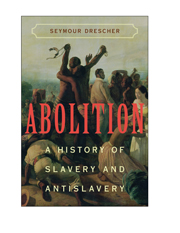Book contents
- Frontmatter
- Contents
- Preface
- PART ONE EXTENSION
- PART TWO CRISIS
- 4 Border Skirmishes
- 5 Age of the American Revolution, 1770s–1820s
- 6 Franco-American Revolutions, 1780s–1820s
- 7 Latin American Revolutions, 1810s–1820s
- 8 Abolitionism without Revolution: Great Britain, 1770s–1820s
- PART THREE CONTRACTION
- PART FOUR REVERSION
- Index
- References
5 - Age of the American Revolution, 1770s–1820s
Published online by Cambridge University Press: 04 August 2010
- Frontmatter
- Contents
- Preface
- PART ONE EXTENSION
- PART TWO CRISIS
- 4 Border Skirmishes
- 5 Age of the American Revolution, 1770s–1820s
- 6 Franco-American Revolutions, 1780s–1820s
- 7 Latin American Revolutions, 1810s–1820s
- 8 Abolitionism without Revolution: Great Britain, 1770s–1820s
- PART THREE CONTRACTION
- PART FOUR REVERSION
- Index
- References
Summary
The movement of black slaves to Europe illustrates just one of the ways in which longstanding expressions of antislavery sentiment began to coalesce at political and legal flashpoints. Developments on both side of the Atlantic demanded increasing attention to tensions inherent in a system that simultaneously subverted and sustained European overseas slavery. During the half century after 1775, the world changed in ways that had a fundamental impact on the future of slavery. A series of developments challenged the equilibrium required by the institution of slavery in the Americas.
The outstanding shift in the Atlantic world during the half century after 1775 was the successful overturning of the asymmetrical division of power between the New World and the Old World, of dominion on one side and dependency on the other. Throughout mainland of the Americas, most erstwhile colonies separated themselves from their original sources of protection and direction. In constituting themselves as independent nations, each new political formation had to raise fundamental questions about the boundaries of citizenship and individual liberty. At both ends of the Atlantic, individuals explored opportunities for expanding the principles and practices of civil liberty and representative institutions.
Before 1770, most European populations had been relatively insulated from the governance of their nation's overseas settlements. Europeans who benefited most directly from the Atlantic slave system were those who also had the most privileged access to the attention of imperial rulers.
- Type
- Chapter
- Information
- AbolitionA History of Slavery and Antislavery, pp. 115 - 145Publisher: Cambridge University PressPrint publication year: 2009



